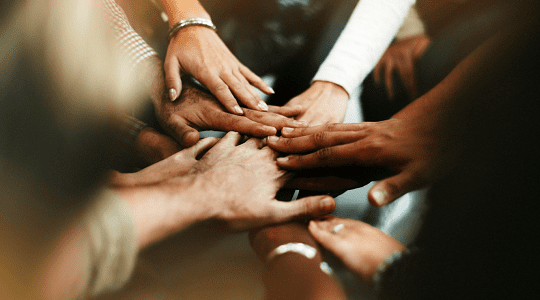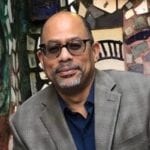
[Editor's Note: "Failure is the mother of success.” Thomas Edison tried thousands of light bulbs before discovering his life-altering solution. Babe Ruth hit 714 home runs, but retired as baseball's strikeout leader. KFC founder Colonel Harland Sanders was 65 when he began franchising his approach to fried chicken. He was rejected more than 1,000 times. Howard Schultz approached 242 investors with the idea of a chain of coffee shops. Nearly 220 of them refused the concept for Starbucks.
 In this series, a partnership with the Institute for Public Relations, industry leaders share difficult, early lessons. See the previous article in the series.
In this series, a partnership with the Institute for Public Relations, industry leaders share difficult, early lessons. See the previous article in the series.
Today, on Dr. Martin Luther King Jr. Day, David Brown, diversity advisor at Temple University's Klein College of Media and Communication, shares a lesson about authenticity.]
One thing that attracted me to PR was how it required the best practitioners to bring a variety of skills to their work. I chose to study PR in college more than 35 years ago, because it took the best of everything (writing, presenting, creating ideas) to excel.
As an African-American male growing up in the often-tough streets of Philadelphia, I started to see how the multi-faceted aspects of PR could effectuate change in powerful ways–particularly around issues like combatting racism and working for greater diversity, inclusion and equity.

But just as much my ethnic identity and gender inspired me to work for change and provided the power to do so, I always held myself in check, depending on the circumstances. In white-dominated spaces, I instinctively code-switched to make colleagues and clients feel comfortable enough to trust my expertise. In Black spaces, I reverted to a vernacular and demeanor that let me be authentically me.
Short-Changing Myself
As I matured, I increasingly felt that this multiplicity was short-changing who I was…and who I wanted to be. It inspired me to start a firm specializing in multicultural marketing. Like running any business, guiding the firm required full devotion–personally, professionally, emotionally and even spiritually. It also taught me that giving all that I am was the best way to serve those I represented. This lesson applies today to students I counsel, my community and myself.
This has become especially critical in a moment of racial reckoning–and as a broader global community. As a teenager, I was a very lucky survivor of a botched drive-by shooting. I have had to stare down police officers with guns drawn during routine traffic stops and during protests amid chants of “Black Lives Matter.”
The lessons I’ve learned are the lessons I’ve earned…but I realize that the most valuable lessons are those which we share to help others. That has become real to me in very ordinary, but profound ways.
I’ve been blessed with a 100-year-old grandmother who served as my informal advisor/clipping service (yes, she still cuts out articles for me to read) and political sparring partner. During a visit, as I was lamenting being “obligated” to use my lived experience to help others make sense of these tumultuous times, she adapted a famous quote to her own interpretation.
“Great men have said, ‘If not us, who? If not now, when?’ No better time than now…and no better person than you, baby.”
Well said, Nana. To yourself be true…and never hold back.
David W. Brown is diversity advisor to the office of the dean, Klein College of Media and Communication, Temple University
